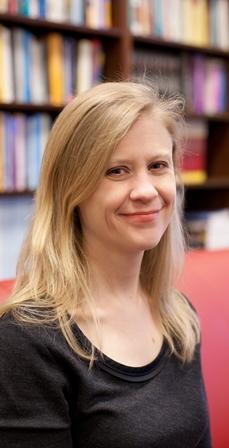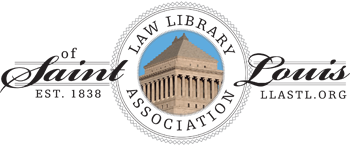
Professor Morgan Hazelton of Saint Louis University is also a prolific author. Her most recent book is “Persuading the Supreme Court: The Significance of Briefs in Judicial Decision Making.” The Law Library Association asked Professor Hazelton to tell us more about her new book.
Tell us about your book, “Persuading the Supreme Court: The Significance of Briefs in Judicial Decision Making.”
In Persuading the Supreme Court: The Significance of Briefs in Judicial Decision Making, my co-author, Rachael Hinkle (University at Buffalo, SUNY), and I investigate how information gets to the Supreme Court through litigant and amicus briefs on the merits and what the justices do with that information in terms of who wins and how they craft majority opinion. In other words, we considered the causes and consequences of information communicated to the Supreme Court through briefs. To do so, we drew from a broad range of disciplines, including law, political science, psychology, and computational linguistics, and approaches.
What motivated you to take on this topic?
Dr. Hinkle and I both came to graduate school in Political Science with a keen interest in the role of information, text, and attorneys in judicial decision-making. For me, this interest was borne out of my experiences practicing law in Texas in civil defense litigation in combination with my undergraduate work in English and German. Dr. Hinkle clerked at both the federal district court and court of appeals levels with a background in history. We also both shared an interest in using computational methods to help investigate such connections.
How did you do the research for this book?
Dr. Hinkle and I took a multi-faceted approach to this book, using interviews and text analytic tools to analyze a vast collection of Supreme Court briefs on the merits. We spoke with attorneys who have filed briefs with the Supreme Court and former Supreme Court clerks to learn about their experiences and perceptions. We combined these insights with the formal rules, prior legal and social science work, and advice regarding legal writing to develop the theories and subsequent hypotheses we took to the data. Our data included over twenty-six thousand briefs on the merits, from both parties and amici, filed in Supreme Court cases between 1984 and 2015 that we collected from commercial databases and briefs in archives. We used natural language processing tools, including cosine similarity measures, to conduct statistical analyses.
Was there anything particularly surprising that you uncovered in doing your research?
Our work highlights a continued tension between aspects of standard advice and formal guidance regarding briefing and social science research. For example, attorneys are told to be both brief and non-repetitive. Our research indicates that the side with the most words has an advantage in winning. We also find that the side with more similar briefs has a greater influence over the majority opinion. Briefing at the Supreme Court is a complex and coordinated effort where standing out with unique information is unlikely to be helpful.
If you had one best practice to tell attorneys writing a brief to the US Supreme Court, what would that be?
Be part of a well-coordinated team! Working across briefs to communicate a breadth of information that reflects coalescence regarding the policy sought across filers is essential.
Anything you want to tell us about this book?
This book highlights the importance of attorneys and clients in the Supreme Court's decisions and opinions. These contributions are often overshadowed during blockbuster Supreme Court decision announcements at the start of every summer. It also indicates the role of law and legal advocacy in an environment where ideology is often the focus.
Morgan Hazelton will be presenting a continuing legal education program previewing the upcoming U.S. Supreme Court term on Wednesday September 20 at 12:30 PM Central Time (virtual event). Find out more at https://llastl.org/CLE-09-23.
